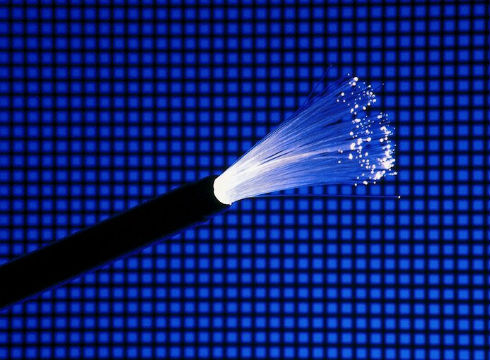Ofcom: UK Broadband ISPs Are Getting Faster, But Must Be More Honest

Broadband speeds increase by 22 percent in past year, but rise attributed to faster packages, not improved service
Average UK broadband speeds have risen by 22 percent in the last year, but Ofcom says that ISPs are continuing to mislead customers.
In its latest report on broadband performance, the regulatory authority called for more transparent advertising and attributed much of the increases in speed to customers moving to faster packages rather than improvements to their service.
Misleading figures?
 According to Ofcom, average actual speeds were 7.6Mbps, an increase of 11 percent from the 6.8Mbps average recorded in May 2011 and 22 percent faster than the 6.2Mbps average measured in November 2010.
According to Ofcom, average actual speeds were 7.6Mbps, an increase of 11 percent from the 6.8Mbps average recorded in May 2011 and 22 percent faster than the 6.2Mbps average measured in November 2010.
However the report says that this is mainly down to customers transferring to broadband packages which offer higher speeds for little or no extra cost. It noted that Virgin Media offered its 20Mbps customers the chance to upgrade to 30Mbps for a one-off fee of £30. As a result, more than half of UK residential broadband customers now have a headline speed of 10Mbps or higher with just one percent having speeds less than ‘up to’ 8Mbps.
Ofcom says that there remain significant differences between the advertised and actual speeds of ADSL-based services, with such connections continuing to deliver average download speeds far lower than those advertised. Connections with headline speeds of ‘up to 8Mbps’ and ‘up to 20-24Mbps’ delivered just 41 percent and 31 percent of their advertised speeds.
Ofcom has said it asked the Advertising Standards Authority to ask CAP and BCAP, the advertising code writing bodies, to conduct a review of the use of the ‘up to’ speed claims in advertising, so that ISPs do not mislead customers.
Greater transparency needed
CAP and BCAP have published guidance that will come into effect in April 2012 that will ensure ISPs can only make speed claims if they are achievable by 10 percent of their customers. If these were implemented today, then ‘up to 8Mbps’ connections would have to be advertised as ‘up to 6Mbps’ and ‘up to 20-24Mbps’ connections would have to be sold as ‘up to 14Mbps’.
Critics of the new CAP/BCAP guildelines have said they still leave the ISPs plenty of room to mislead their customers, however.
“While the focus invariably when talking about speed is the download speed, the Ofcom report does cover other important metrics such as upload speed, latency, DNS lookup time and jitter,” commented Andrew Ferguson, editor of Thinkbroadband.com. “Alas in advertising these are often neglected which can lead to people buying packages that are less suited to their needs, for example a first person shooter gamer needs to pick a provider with low jitter and packet loss, not just the provider who wins the download speed battle.”
“It will come as no surprise to many of us that there’s often a discrepancy between the super-fast speeds advertised by broadband providers and the actual speeds that we get at home,” said Ernest Doku, technology expert at uSwitch. “”But there’s another elephant in the room that this data doesn’t mention, the gaping divide between speeds in urban and rural areas.”